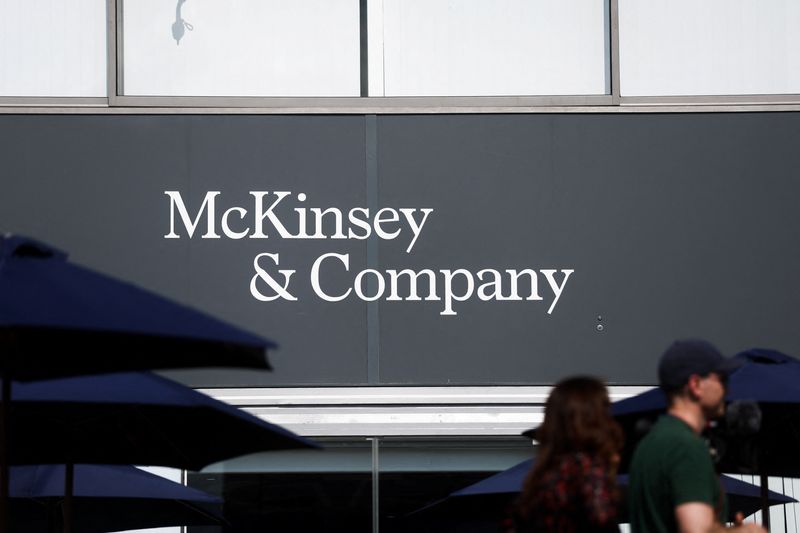By Jonathan Stempel
NEW YORK (Reuters) – A U.S. judge has dismissed turnaround specialist Jay Alix’s lawsuit accusing consulting giant McKinsey & Co of misleading bankruptcy courts about conflicts of interest when seeking permission to do lucrative corporate restructuring work.
U.S. District Judge Jesse Furman in Manhattan said Alix lacked standing to sue under the federal Racketeering Influenced and Corrupt Organizations Act (“RICO”) because AlixPartners, the consulting firm he founded and owned is a partial owner, has never granted him that right.
“Alix has no one to blame but herself — or perhaps AlixPartners,” Furman wrote in a 34-page decision Wednesday.
The decision follows six years of often bitter litigation between Alix and one of his most powerful rivals, including a successful appeal by Alix in 2022 against an earlier dismissal.
“We are disappointed in Judge Furman’s decision and respectfully disagree with it,” said Jay Alix’s attorney, Sean O’Shea. “This is an insubstantial ruling on the matter, and we fully expect the appeals court to see our way again.”
‘CRIMINAL ACT’ ALLEGED
Alix accused McKinsey of running a “criminal enterprise” by concealing its ties to its clients’ lenders and competitors.
He said these conflicts should have disqualified McKinsey from thirteen bankruptcies, including American Airlines (NASDAQ), food retailer Harry & David and coal producer Alpha Natural Resources, and possibly cost AlixPartners some business.
Alix also accused McKinsey of operating a “pay-to-play” program under which McKinsey would arrange meetings between its advisory clients and bankruptcy lawyers if those lawyers referred their bankruptcy clients to McKinsey for restructuring work.
RICO lets people file a lawsuit if they believe criminal enterprises have harmed them. Alix had demanded triple damages.
McKinsey said in a statement: “We have been saying for years that Jay Alix’s allegations are completely baseless and we are pleased that the case has once again been dismissed.”
AlixPartners was not a party to the case. The New York-based company and its lawyers did not immediately respond to requests for comment.
‘NO TECHNICALITY’
Alix’s assignment allowed him to bring claims against McKinsey for “illegal competitive activities in the crisis management and consulting industries involving major bankruptcy cases.”
But the judge said that “illegal competitive activity” obviously refers to antitrust claims, and said the brief did not mention RICO or terms like racketeering and organized crime.
Furman said it was unclear whether the drafting was simply careless, or whether Alix and AlixPartners were “trying to play fast and loose” by shielding AlixPartners from the burden of lawsuits while preserving the ability to file a lawsuit later.

The result “may smack of a technicality – especially in light of the long history of this lawsuit,” the judge wrote. “But it’s not just a technical detail.”
Furman said the order didn’t come up in the lawsuit until January of this year, which explains why he didn’t rule on its validity sooner.


